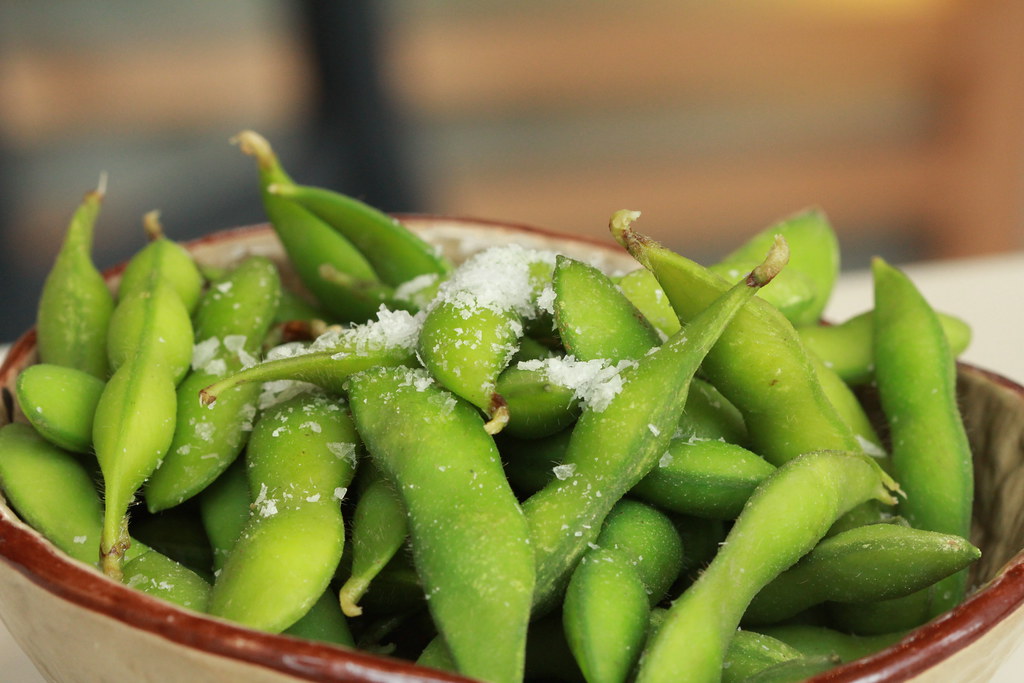Edamame is not just only a type of vegetable, it contains rich history and benefits to keep our bodies to be healthy.
Edamame: the long road to the 21st-century
In the 7th century BC, people in China already found and recorded what is soybean and how to use it. At the time it was called Shu this name was recorded in the Book of Shijing (Book of Odes). Until 100 AD, the name was changed to Sheng Dadou means Raw and fresh large bean. Fast Forward to the year 1275, a Japanese monk named Nichiren Shônin wrote a note to thank the temple for taking care of him, the word Edamame was mentioned. Later in the year 1406, the Ming dynasty in China suffered famine. The government told people to eat edamame to avoid hunger, it was the first record document about how to eat and what contains inside of edamame. Later in the 19th century, America started to harvest soybean and recognized edamame, until the last few decades with “Sushi Boom” in America, edamame becomes popular in North America.
Nowadays, all of the Japanese restaurants are served edamame weather order it or give you free as a side dish before you eat the meal.
How to eat and what’s inside?
According to USDA (United States Department of Agriculture Agricultural Research Service)
Edamame contains (served as 1 cup of edamame)
- Total Fat – 8g
- Saturated Fat – 1g
- Cholesterol – 0 (0%)
- Sodium – 9mg (<1%)
- Total Carbohydrate – 16g
- Dietary Fiber – 8g (32%)
- Sugars – 3g
- Protein – 17g
- Calories – 189
- Vitamin A – 0%
- Vitamin C – 16%
- Calcium – 10%
- Iron – 20%
The traditional way to eat edamame is to boiling salt water and eat. Nowadays, you can buy a pack of frozen edamame either boiling and eat or use a microwave to heat for 3 minutes and wait for another 3 minutes to let it steam in the bag then put into the fridge for cooling down or eat them right away, you can add some salt to make tastier as well.
Benefits?!
Research shows that edamame has rich benefits for your health, it contains:
- High in Protein
- May Lower Cholesterol
- Doesn’t Raise Blood Sugar
- Rich in Vitamins and Minerals
- May Reduce the Risk of Breast Cancer
- May Reduce Menopausal Symptoms
- May Reduce the Risk of Prostate Cancer
- Might Reduce Bone Loss
- May help reduce Age-related brain diseases
- Depression

EAT MEEEEEE!
Sources used https://www.medicalnewstoday.com/articles/280285#benefits https://www.healthline.com/nutrition/edamame-benefits#section9 https://en.wikipedia.org/wiki/Edamame http://edamameusa.com/facts.htm https://www.soyinfocenter.com/books/133 https://www.soyinfocenter.com/pdf/133/GVS.pdf Picture used http://peluchesgigantes.esy.es/peluche-guisante-gigantes-toy-story-3/


Excellent focus on the history and the health benefits Aaron!